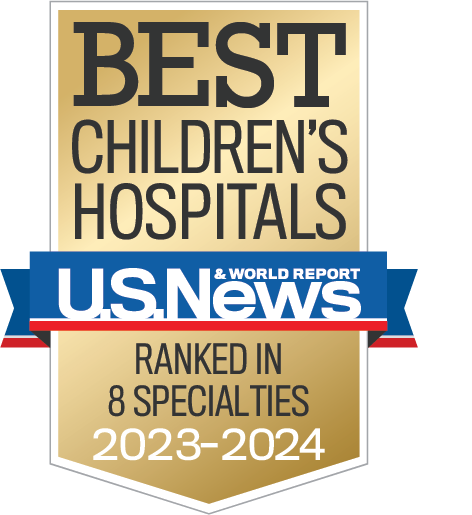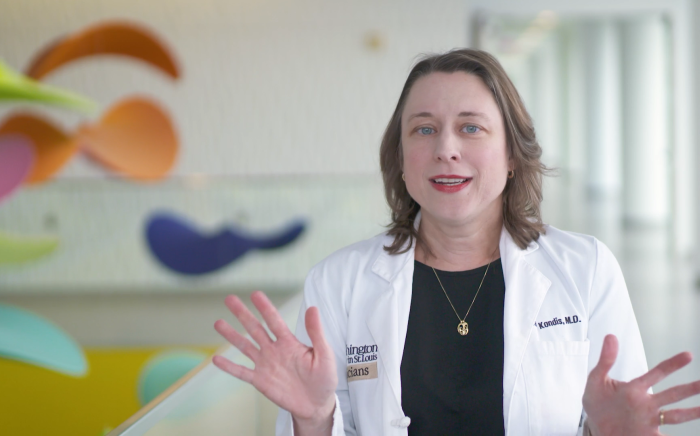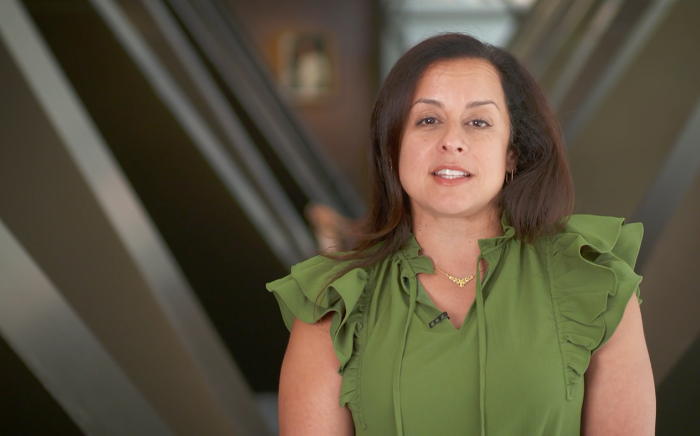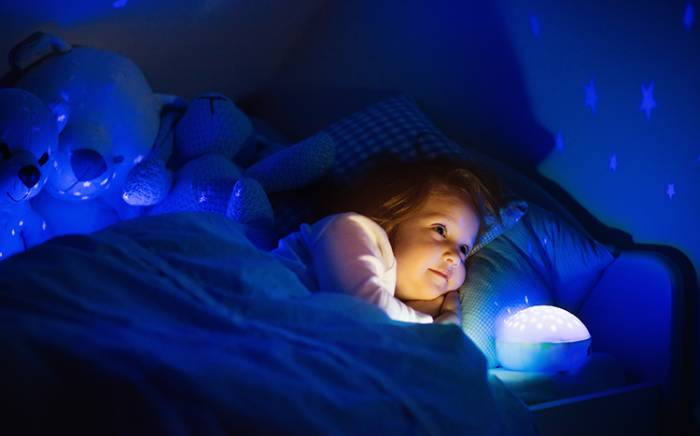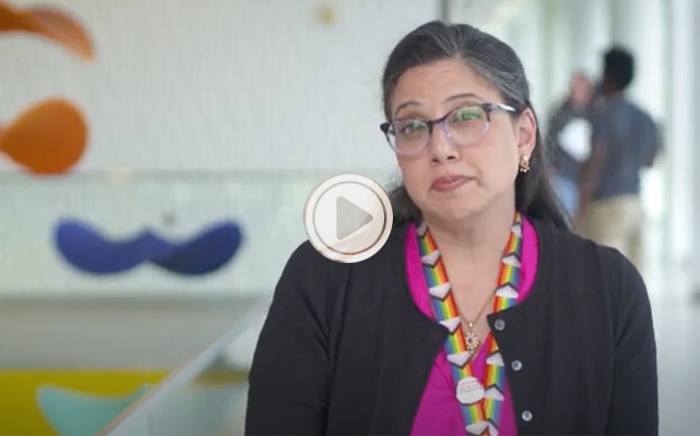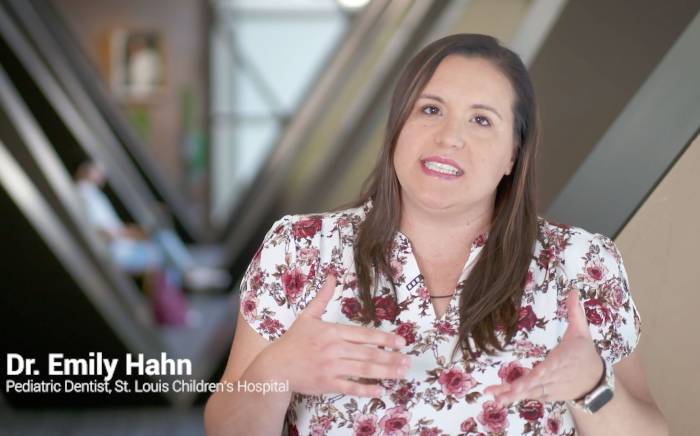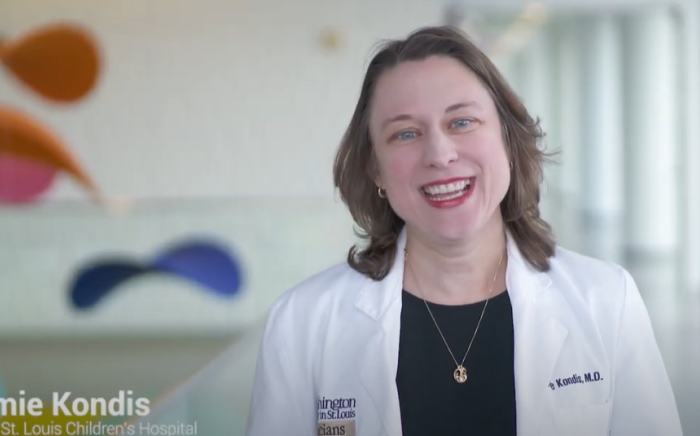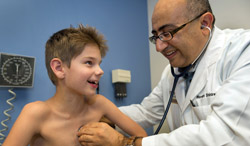 Knowing your child may have an increased risk for cancer can be worrisome. Fortunately, we know genetic testing for cancer can improve the chance of finding and treating some cancers at an early stage.
Knowing your child may have an increased risk for cancer can be worrisome. Fortunately, we know genetic testing for cancer can improve the chance of finding and treating some cancers at an early stage.
Cancer Predisposition Program
Hereditary cancer — also called cancer predisposition syndrome or family cancer predisposition — results from genetic mutations (changes). These genetic traits are passed from parent to child, so multiple close relatives may be affected. Depending on the specific mutation, hereditary cancer may increase a person’s risk of developing:
- A specific type of cancer
- Cancer at an early age
- Multiple types of cancer
Hereditary cancers account for 10 percent of all cancers. Our Cancer Predisposition Program diagnoses and treats children who are predisposed, or more likely, to develop cancer.
Genetic Testing for Cancer
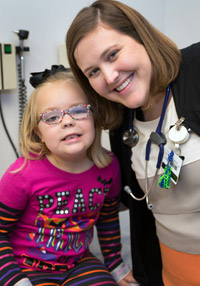 Genetic testing and counseling can help us identify and manage your child’s risk for cancer. Our experienced staff will screen for a variety of concerns your child or family may experience as a result of cancer predisposition syndrome. We will look for genetic mutations and inherited genes.
Genetic testing and counseling can help us identify and manage your child’s risk for cancer. Our experienced staff will screen for a variety of concerns your child or family may experience as a result of cancer predisposition syndrome. We will look for genetic mutations and inherited genes.
We offer support, counseling and education to families, and we can facilitate treatments, if needed. You will work with a team that includes:
- Genetic counselors
- Specially trained cancer doctors
- Nurses
- Child life specialists
Hereditary Cancer Conditions We Treat
Hereditary cancers are rare. At St. Louis Children’s Hospital, we have experience treating these rare conditions, including:
- Fanconi anemia: This disease prevents bone marrow from making enough new blood cells. Fanconi anemia increase a person’s risk of developing several types of cancer, including acute myeloid leukemia (AML), squamous cell carcinoma and vulvar cancer.
- Xeroderma pigmentosum: Also known as XP, xeroderma pigmentosum causes extreme sensitivity to sunlight, leading to a high risk of developing skin cancer.
- Retinoblastoma: This eye cancer usually develops before age 5.
- Li-Fraumeni syndrome: An inherited genetic predisposition to multiple types of cancer, Li-Fraumeni syndrome increases a person’s risk of developing cancer at any age. This condition commonly leads to cancer in the brain, bones, soft tissue, blood and breasts, among others.
- DICER1 syndrome: A mutation to the DICER1 gene increases a person’s odds of developing cancerous or noncancerous tumors in the lungs, kidneys, ovaries and thyroid.
- Neurofibromatosis type 1: This rare condition causes changes in skin color, noncancerous tumors and cancerous peripheral nerve sheath tumors. Neurofibromatosis Type 1 also increases a person’s risk of developing brain tumors and blood cancers.
- Down syndrome: Children with this chromosomal condition experience developmental and growth delays. People with Down syndrome have a higher risk of developing blood cancers like acute lymphoblastic leukemia (ALL) and acute myeloid leukemia (AML), but are less likely to develop solid tumors, such as prostate, breast and uterine cancers.
Make a Genetic Screening Appointment
For more information about genetic screening for cancer or to schedule an appointment, call 314.454.5437 or 800.678.5437 or email us.
Conditions We Treat
Related Programs & Services
We offer world-class care to children thanks in part to generous gifts from hundreds of people who have joined us in making health care better for all children. This philanthropic support enables us to fulfill our mission to do what's right for kids.




